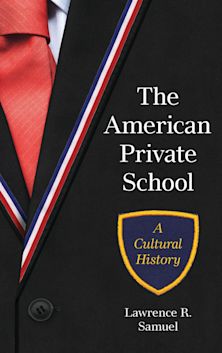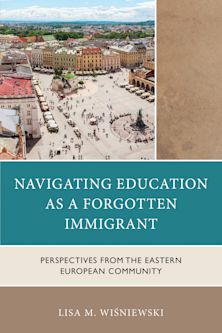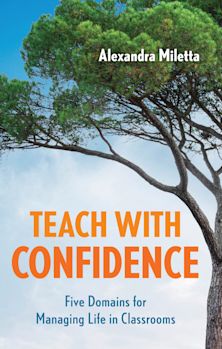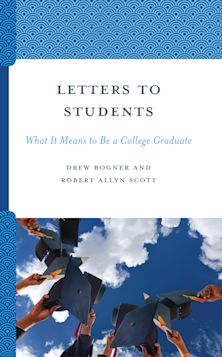- Home
- ACADEMIC
- Education
- Education - Other
- Supplementary Education
Supplementary Education
The Hidden Curriculum of High Academic Achievement
Edmund W. Gordon (Anthology Editor) , Beatrice L. Bridglall (Anthology Editor) , Aundra Saa Meroe (Anthology Editor)
- Textbook
Supplementary Education
The Hidden Curriculum of High Academic Achievement
Edmund W. Gordon (Anthology Editor) , Beatrice L. Bridglall (Anthology Editor) , Aundra Saa Meroe (Anthology Editor)
- Textbook
For information on how we process your data, read our Privacy Policy
Thank you. We will email you when this book is available to order
Buy from Bloomsbury eTextBooks
You are now leaving the Bloomsbury Publishing website. Your eBook purchase will be with our partner https://www.vitalsource.com.
Your credit card statement will show this purchase originating from VitalSource Technologies. They will also provide any technical assistance you might require.
You must sign in to add this item to your wishlist. Please sign in or create an account
Description
In Supplementary Education, the editors argue that while access to schools that enable and expect academic achievement is a necessary ingredient for the education of students, schools alone may not be sufficient to ensure universally high levels of academic development. Supplemental educational experiences may also be needed. The idea of supplementary education is based on the assumption that high academic achievement is closely associated with exposure to family and community-based activities and learning experiences that occur both in and out of school in support of academic learning. For low income and some ethnic minority student groups, opportunities to participate in such activities are generally under-resourced and underutilized in comparison to the access to and participation in such activities by many European- and Asian- Americans from mid to high socio-economic backgrounds.
This book makes the case for supplementary education. Specifically, it focuses on the need for universal access to high levels of academic achievement, and the challenge of reducing the "achievement gap" that exists between Asian American and European American students and their African American, Latina/o, and Native American counterparts. Having posed the problem, the editors define the construct and provide in-depth descriptions of some of the more colloquial expressions of supplementation in after school care, youth development, and other forms of supplemental education. The editors close with a discussion of the emerging institutionalization and need for more thoughtful and rigorous research of the supplementary education movement.
Table of Contents
Chapter 2 Preface
Part 3 Part I: Conceptual Foundations for Supplementary Education
Chapter 3 After-School Programs, Youth Development, and Other Forms of Supplementary Education
Chapter 4 Universal Access to Academic Excellence
Chapter 5 The Challenge, Context, and Preconditions of Academic Development at High Levels
Chapter 7 Supplementation and Supplantation as Alternative Education Strategies
Chapter 7 Supplementary Education, the Negotiation of Sociocultural Marginality, and the Uses of Reflexivity
Chapter 8 Academic Politicalization: Supplementary Education from Black Resistance
Chapter 9 Family Environments in Support of Academic Achievement
Chapter 10 The Impact of Extracurricular Activities on Standardized Test Scores
Part 12 Part II: Varieties of Supplementation Programs
Chapter 13 A Taxonomy of Supplementary Education Programs
Chapter 14 Varieties of Supplementary Education Interventions
Chapter 15 Families as Contractual Partners in Education
Chapter 16 Parents as Advocates for Education
Chapter 17 Community Support for Supplementary Education
Part 18 Part III: The Idea of Supplementary Education
Chapter 19 The Institutionalization of Supplementary Education
Chapter 20 Conceptual and Practical Issues in Evaluating Supplementary Education Programs
Chapter 21 The Idea of Supplementary Education
Product details
| Published | 26 Nov 2004 |
|---|---|
| Format | Ebook (PDF) |
| Edition | 1st |
| Extent | 368 |
| ISBN | 9798216315360 |
| Imprint | Rowman & Littlefield Publishers |
| Publisher | Bloomsbury Publishing |
About the contributors
Reviews
-
In this book, Gordon and Bridglall highlight the role of grandmothers in the lives of black men 'who defied the odds against success.' This intergenerational passage of love is a form of supplementary education that not only assures that the child becomes 'one who loves' but also supports his or her academic achievement.
Margaret Lawrence, retired psychiatrist, Harlem Hospital and Columbia University
-
The task of every generation is to raise our children, not merely to instruct them. Gordon, Bridglall, and Meroe's engaging collection of essays shows us how important it is to provide out-of-school experiences that nurture children's identity, curiosity, and sense of possibility.
Thomas Sobol, former commissioner of education, New York State; currently the Christian A. Johnson Professor of Outstanding Educational Practice, Teachers College, Columbia University
-
Supplementary Education brilliantly captures many aspects of the rich learning experiences that some parents create to complement their children's schooling. These supplementary experiences are indeed the hidden curriculum of high academic achievement, but sadly remain unavailable to all of our children.
Freeman A. Hrabowski, president, University of Maryland, Baltimore County of Maryland

































